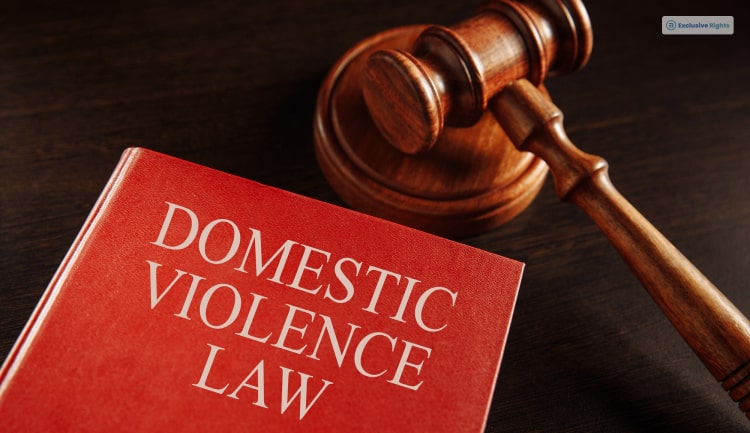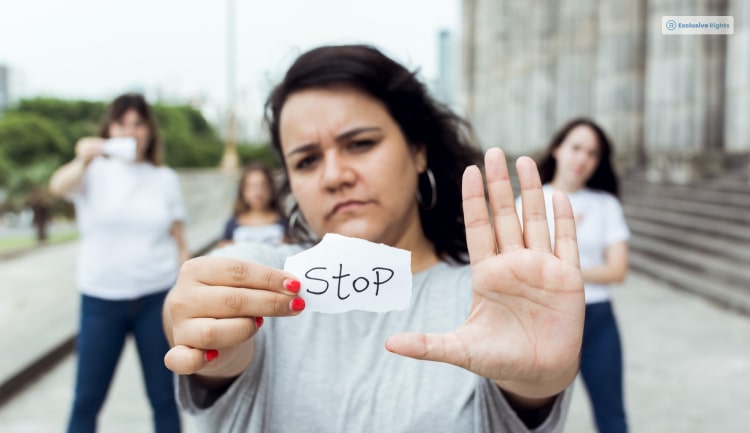
Table Of Contents
- What Is Spousal Abuse?
- 1. Spousal Abuse Defined: Much More Than Bruises
- 2. Physical Abuse: When Love Turns to Pain
- 3. Emotional and Psychological Abuse: The Invisible Shackles
- 4. Financial Abuse: Controlling More Than Just Hearts
- 5. Isolation and Stalking: The Web Tightens
- 6. The Cycle of Abuse: A Vicious Waltz
- 7. The Silent Suffering: Impact on Victims
- Is Domestic Violence A Crime In The US?
- The Legal Landscape: Domestic Violence as a Crime
- Federal Legislation: The Violent Crime Control and Law Enforcement Act
- State Laws: Variations and Specifics
- Protection Orders: A Legal Shield for Victims
- Criminal Charges: Holding Abusers Accountable
- Child Protection: Ensuring Safety for All
- Community Resources: Support and Shelter
- What Is The Punishment For Domestic Abuse In America?
- What Are Your Rights Against Spousal Abuse?
- Frequently Asked Questions (FAQ)
- Final Thoughts
What Is Spousal Abuse? What Are Your Rights Against It?
Facing abuse from your spouse can be heartbreaking and traumatizing.
This is because a spouse should be the last person you will be expecting to be mistreated after getting married.
But, if you have been a victim of spousal abuse, then worry not, as you have various rights provided by law for the purpose of protecting yourself from the threats and violence of your spouse.
In this article, we will talk about the concept of spousal abuse and the rights and punishments of the same.
What Is Spousal Abuse?

At its core, spousal abuse, also known as domestic violence, is like a sinister puppeteer pulling the strings of an intimate relationship.
1. Spousal Abuse Defined: Much More Than Bruises
It involves a pattern of behaviors where one partner seeks to gain power and control over the other. And here’s the kicker – it’s not just about physical violence. This twisted dance can also include emotional, psychological, or even financial manipulation.
2. Physical Abuse: When Love Turns to Pain
The most recognizable face of spousal abuse is physical violence. It’s the hitting, slapping, pushing – the kind of stuff you’d see in a nightmare. These acts leave not just physical scars, but they fracture the very trust and safety that should be the bedrock of a relationship.
3. Emotional and Psychological Abuse: The Invisible Shackles
But here’s the thing – spousal abuse can be far more insidious. Emotional and psychological abuse doesn’t leave visible scars, but it leaves deep, invisible wounds. It’s the constant belittling, the undermining of self-worth, the manipulation that eats away at a person’s soul.
4. Financial Abuse: Controlling More Than Just Hearts
Then there’s the financial aspect. Some abusers use money as a weapon, controlling the purse strings and leaving the other partner financially dependent. This can make escape from the abusive relationship seem impossible.
5. Isolation and Stalking: The Web Tightens
Abusers are like architects of isolation, cutting off their victims from friends and family, making them feel like there’s no one to turn to. Sometimes, this escalates to stalking, where the abuser monitors the victim’s every move, making them feel constantly watched.
6. The Cycle of Abuse: A Vicious Waltz
One of the most bewildering aspects of spousal abuse is the cycle it often follows. There’s a period of tension building, where the abuse escalates, followed by an explosive incident. Then, the abuser may apologize or promise change, leading to a honeymoon phase. But don’t be fooled; this is often short-lived, and the cycle repeats.
7. The Silent Suffering: Impact on Victims
Spousal abuse doesn’t discriminate; it can happen to anyone, regardless of gender, age, or socioeconomic status. The impact on victims is profound, leading to physical and emotional trauma, shattered self-esteem, and, in the worst cases, even loss of life.
Is Domestic Violence A Crime In The US?

Hey there, let’s delve into a critical topic: domestic violence and its status as a crime in the United States. Domestic violence is a harsh reality that affects countless lives, and understanding its legal dimensions is crucial.
The Legal Landscape: Domestic Violence as a Crime
Yes, absolutely, domestic violence is considered a crime in the United States. It’s not just a private matter, it’s against the law, and for good reason. Domestic violence laws exist at the federal, state, and local levels, designed to protect victims and hold offenders accountable.
Federal Legislation: The Violent Crime Control and Law Enforcement Act
At the federal level, the Violent Crime Control and Law Enforcement Act was passed in 1994. This legislation included the Violence Against Women Act (VAWA), which provides funding for programs that support victims and holds offenders accountable. VAWA has been reauthorized several times, emphasizing the importance of addressing domestic violence.
State Laws: Variations and Specifics
While there are federal laws in place, the bulk of domestic violence cases are handled at the state level. Every state in the US has its laws and definitions regarding domestic violence. These laws often encompass a range of abusive behaviors, not just physical violence but emotional, psychological, and financial abuse as well.
Protection Orders: A Legal Shield for Victims
One powerful tool to protect victims is a restraining order or a protection order. These court orders prohibit abusers from contacting or coming near the victim. Violating such orders is a criminal offense in itself and can lead to arrest.
Criminal Charges: Holding Abusers Accountable
Domestic violence can result in criminal charges for the abuser. These charges can include assault, battery, or even more severe charges in cases of severe harm or repeat offenses. Penalties vary but can include fines, probation, or imprisonment.
Child Protection: Ensuring Safety for All
Domestic violence isn’t just about partners; it affects children in the household as well. Child protective agencies work in tandem with law enforcement to ensure the safety of children in these situations.
Community Resources: Support and Shelter
Across the country, there are numerous community resources like domestic violence shelters, crisis hotlines, and counseling services available for victims. These organizations play a vital role in helping survivors escape abusive situations and rebuild their lives.
What Is The Punishment For Domestic Abuse In America?

The crime of spousal abuse or domestic abuse has been noticed to carry a fine upto $250 and a prison sentence upto 15 days.
The offense of domestic abuse or spousal abuse is governed under the law of ‘Violence Against Women Act (VAWA).’
In such cases, the Court has been observed for ordering restitution for paying the victim the full amount that has been lost.
These costs can include medical and psychological care, physical therapy, transportation, housing, childcare expenses, loss of income, attorney fees, and other costs related to acquiring protection from the abuser.
What Are Your Rights Against Spousal Abuse?

As a victim of domestic violence or spousal abuse, you are entitled to federal rights.
If you are a victim of spousal abuse, then you are entitled to the following rights as under ‘42 U.S.C. Section 10606(b)’:
- The right to be treated with fairness and respect for the victim’s dignity and privacy.
- The right to be reasonably protected from the accused offender.
- The right to be notified of court proceedings.
- The right to restitution.
- The right to conviction, sentencing, imprisonment, and release of the offender.
- The right to confer with the attorney for the government in the case.
Frequently Asked Questions (FAQ)
Yes, It does. It is the ‘Domestic Violence Hotline,’ which is ‘1-800-799-SAFE (7233)’. It also has the National Coalition Against Domestic Violence,’ which is ‘1-303-839-1852’.
Final Thoughts
Domestic violence is not a problem that can be solved by the legal system alone. It requires a collective effort from society, involving friends, family, neighbors, and coworkers, to support victims and hold abusers accountable. Reporting domestic violence is a crucial step in this process.
So, domestic violence is not just a crime in the US; it’s a serious crime with far-reaching legal implications. Remember, if you or someone you know is a victim of domestic violence, there is help and support available. Reach out to local resources and report these crimes to law enforcement. Together, we can break the cycle of domestic violence and offer safety and hope to survivors.
Read More:









